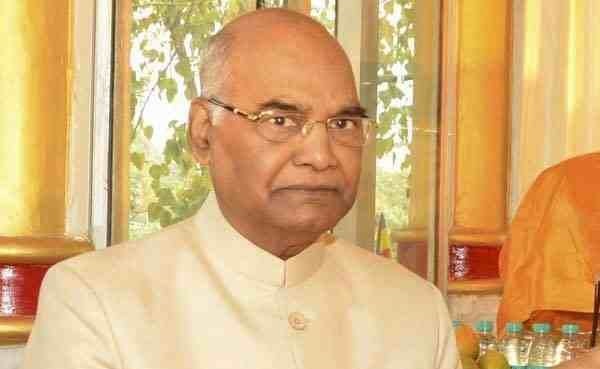By Our Correspondent
NEW DELHI/BHUBANESWAR/BHOPAL: The objective of the judicial system is not merely to resolve disputes, but also to uphold justice. This could be implemented by removing obstacles like delay in the delivery of justice, said the President Ram Nath Kovind. He was speaking at the inauguration of the All India State Judicial Academies Directors’ Retreat at Jabalpur, Madhya Pradesh on Saturday.
The President was happy to note that the use of technology in the judicial system has increased rapidly. More than 18,000 courts have been computerized in the country. Till January 2021 including the lockdown period, around 76 lakh cases were heard in virtual courts across the country. He said that initiatives like National Judicial Data Grid, Unique Identification Code and QR Code are being appreciated globally. With the help of e-courts, video conferencing, e-proceedings, e-filing and e-seva centers, it is easier for the judicial administration to dispense justice. Another benefit of this technological intervention is that due to these initiatives, use of papers has decreased, which helps conserve the natural resources.
The President said that the lower judiciary is core of the country’s judicial system. Our judicial academies are doing important job by training law students into learned judges. He said that there is a need to increase the scope of training of judges as well as other judicial and quasi-judicial officers for speedy disposal of pending cases in our courts, especially in the district courts.
The President said that to provide ‘speedy delivery of justice’, it is essential that besides extensive judicial training, there is need to introduce the use of technology in our judicial processes. Due to the increasing number of cases, it becomes necessary to understand the issues in correct perspectives and take accurate decisions in a short time. The introduction of new laws, extensive changes in the nature of litigation and the need to settle cases in a time-bound manner have also made it imperative for judges to have up-to-date knowledge of the law and procedures, he added.
The President said that ‘we, the people of India’, have high expectations from the judiciary. Society expects judges to be knowledgeable, prudent, affectionate, dignified and impartial. Quality is given more importance than numbers in the judicial system. And, to meet these requirements, it is very important to keep updating the training procedures, knowledge, technology, and judicial skills. Thus, even at the induction level and in-service training, the role of state judicial academies becomes very important in educating judges in a manner to measure upto expectation.
The President was happy to note that the Supreme Court has made available translations of its decisions in nine Indian languages. Some High Courts are also providing translations of their verdicts in local languages. He congratulated all those involved in this endeavour and urged High Courts to provide certified translations of their decisions related to important aspects of public life in state’s official languages simultaneously like the Supreme Court.
The President pointed out that the last resort for every person is the judiciary which is indicative of the trust people repose in the judicial system. In order to maintain this trust, all of us as organs of the state should ponder on the following points:What can we do to use the technology in order to simplify the processes for the people, in their own language, with the aim to provide speedy, accessible and affordable justice?· Similarly, how can we expand the scope of alternative justice systems like arbitration, mediation, Lok Adalats?· How can the use of the official language of the state be further encouraged in the proceedings of the High Courts and District Courts?· And, what steps can be taken to reduce the number of government lawsuits?
The President said that the objective of the judicial system is not merely to resolve disputes, but also to uphold justice and one way to uphold justice is to remove obstacles like delay in the delivery of justice. Justice is not delayed only by lack of court’s functioning or system. On many occasions, the plaintiff and the defendants use it as a tactic. They continue to prolong the trial on the basis of loop-holes present in laws and procedures, etc. by resorting to frequent adjournments. He said that it is necessary for the judiciary to play a pro-active role while being vigilant in resolving these loop-holes present in court proceedings and procedures. This goal can be achieved by adopting innovations taking place at national and international levels and sharing best practices. He expressed confidence that in the two-day conference all these aspects of judicial administration will be discussed in depth and the points of action will be decided.






























